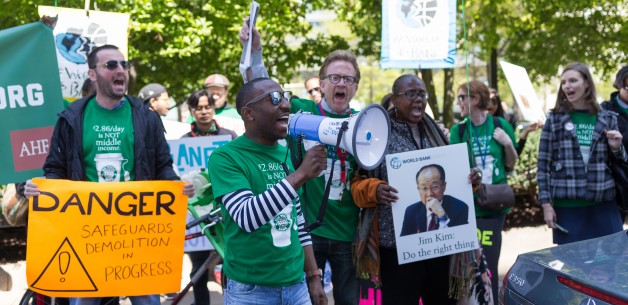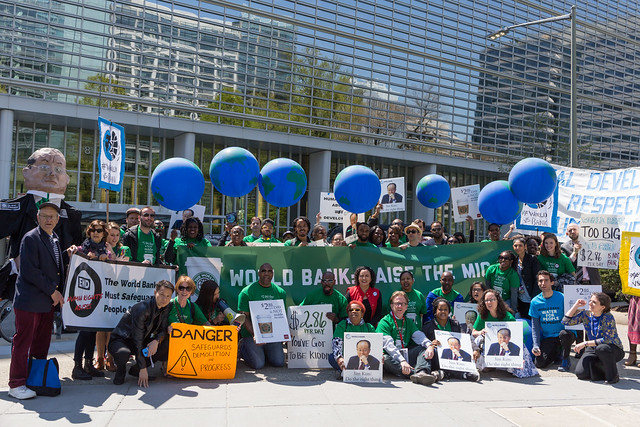On Friday, April 15th the Coalition for Human Rights in Development (global coalition of social movements, civil society organizations, and grassroots groups working to ensure that all development finance institutions respect human rights) held a protest outside the World Bank headquarters. Activists highlighted the World Bank’s failure to produce a strong, mandatory set of safeguard policies protecting people and the planet from the negative impacts of development projects.
Throughout the history of the World Bank, projects like dams, roads, power plants have inflicted harm on some local communities and ecosystems, including through project side effects like eviction, pollution, and human rights abuses. Examples of these calamities was thrown into sharp light last year by the ICIJ’s series of reports entitled Evicted and Abandoned: The World Bank’s Broken Promise to the Poor.
Over the past three years, the Bank has struggled to revise their safeguard policies to prevent similar disasters in the future. Unfortunately, there remains controversy over issues such as the inclusion of protections for vulnerable groups like children, persons with disabilities, and members of LGBTQ communities. Advocates are demanding that the World Bank ensure that these groups, their livelihoods, and their environments are protected from the potentially harmful side effects of development.
The protest was held during the World Bank and IMF Spring Meetings in Washington, DC, in partnership with the Raise the MIC campaign, who are urging the World Bank to reconsider the way it classifies middle-income countries (MICs). MICs receive less foreign aid and pay higher prices for essential medicines and medical commodities.
For more information on the World Bank safeguards review process, visit BIC’s Safeguards page.


